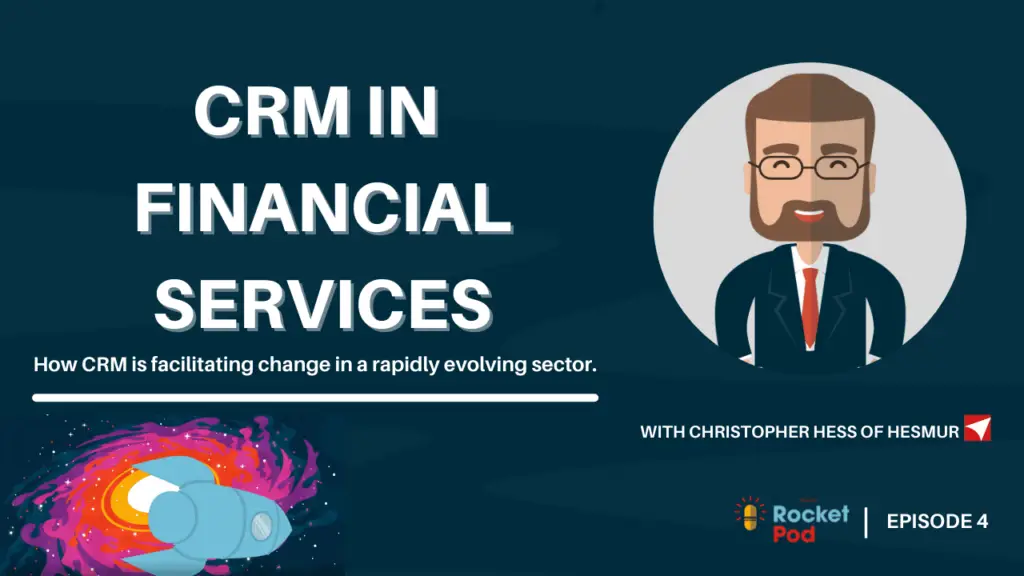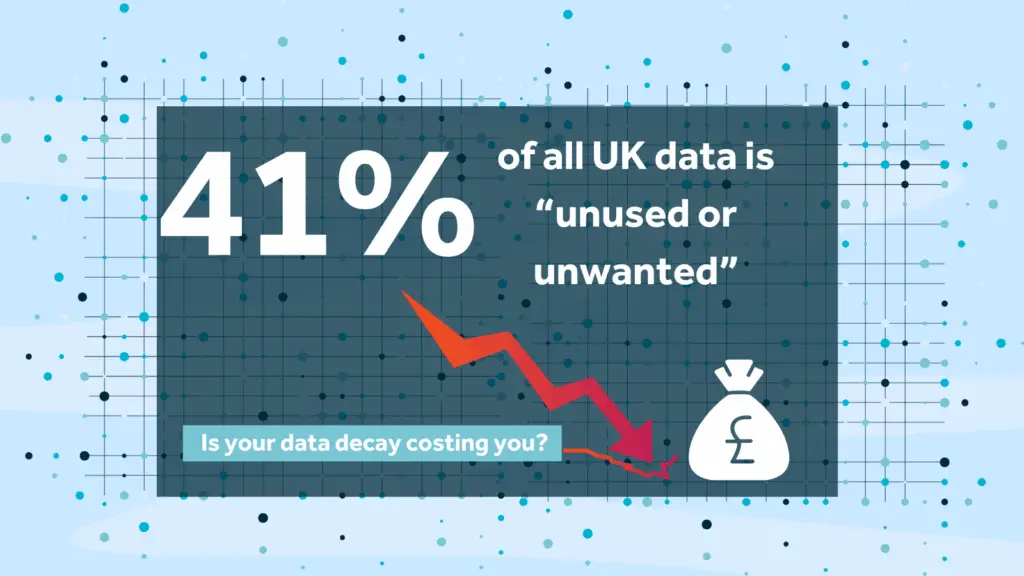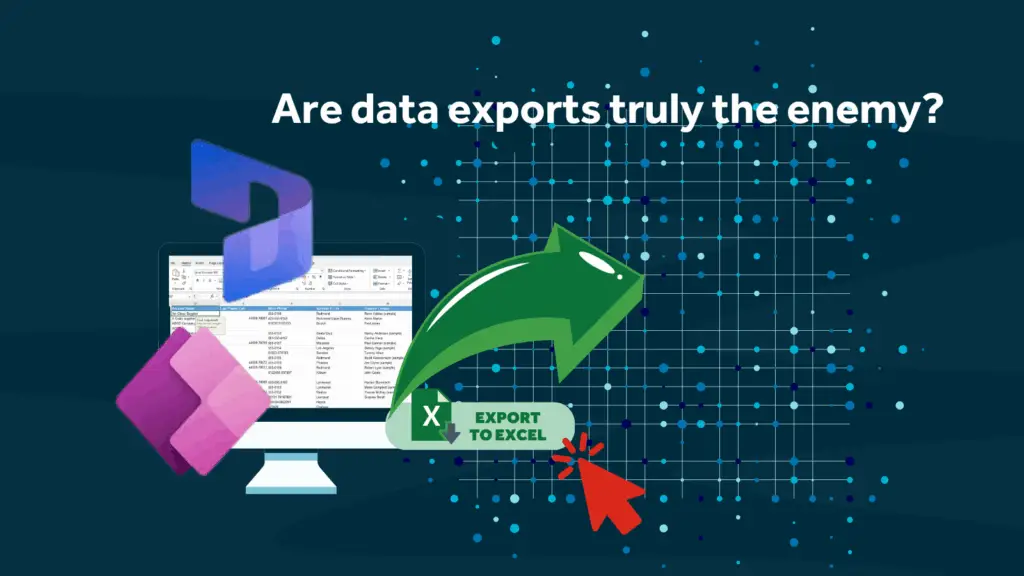CRM in financial services is a critical business tool
CRM software has been around for decades and has evolved from a simple record-holding system to a sophisticated data management tool that helps businesses connect better with customers and operate more efficiently and effectively.
Investing in this type of technology is not simply a ‘nice to have’; it is now an essential component of a business’s IT infrastructure in this increasingly digitally enabled world, which is true for nearly all sectors, B2B or B2C. And whilst some industries have embraced the recent digital shift with ease and are reaping the benefits of modern CRM technology, others are still playing catch up. One such industry is financial services, a broad sector which, in some areas, is still very much a laggard in digital adoption and the use of modern CRM.
We’ve invited Christopher Hess of Hesmur, a financial services strategist and digital transformation expert, to share his thoughts on the radical changes happening in this sector and the role of CRM in successful digitisation. At a time of rising consumer demands and changing industry regulation, Chris explains why wealth management must make this digital shift sooner rather than later and why CRM should be considered a critical component of digital transformation.
Interview summary with Chris Hess of Hesmur
Financial services are having an overhaul
“The financial services (FS) sector is undergoing radical changes and is under significant pressure to digitise its sales and distribution operations to deliver the experiences customers expect, with the standard set in other sectors. It could be said that broadly FS is somewhat of a laggard in digital adoption and how it uses CRM to enhance the customer experience, especially within wealth management. Yet, as we uncover, change is definitely underway.
The sector is very broad, and the way providers interact with customers varies. Whilst some have excelled – especially where they have direct relationships with customers, such as retail banking and Direct to Consumer (D2C) trading platforms other sectors are struggling and still trying to transform to a more customer-centric way. This is particularly difficult in intermediated markets where there are multiple levels of the customer relationship.
CRM in FS has always played a role but doesn’t have the best reputation for several reasons. The first is that many FS customer data systems don’t offer a holistic view of customers (sometimes even within one provider). In the intermediatory space specifically, there’s a real gap between the provider, intermediatory and customer.
Drivers of change in FS
This sector is seen as a laggard, but in recent years there’s been a move to drive things forward, partly due to the impact of the pandemic, which has forced FS organisations to think of new ways of interacting better with customers via digital channels. Change is also driven by the customers’ expectations of how they want to interact; When they want, wherever they want, in the way they want.
People are time-poor, and face-to-face conversation is less desired. They want the ability to simplify and speed up their personal finances and administration, and the industry needs to cater to these changing customer needs in a much more flexible and responsive way. Hesmur’s syndicated research has demonstrated a general desire for greater flexibility in engaging with advisers, from video chats to digital tools and a range of self-service options. Other market research has indicated the vast majority of customers view digital as a key component of any proposition.
There are also a whole series of regulatory drivers, specifically in the UK, introduced to ensure that the right things are done for customers – these customer care improvements are coming as part of the Consumer Duty Regulation changes delivered by the FCA, due to come into force in 2023.
Advisors and providers will need to have a more holistic overview of customer requirements and also be able to ensure products and services are suitable to their needs by carefully managing risk.
Looking at the wealth management sector specifically this sub-sector highlights many issues concerning knowing and supporting the customer. It highlights the product silo challenge, the need to provide a 360 up to date view of the customer, and the need to help the customer navigate channels seamlessly between provider and intermediary.
Whilst navigating and addressing these issues may seem challenging to providers and intermediaries, CRM offers many opportunities to address this product silo challenge and improve the customer journey. Replacing long, drawn-out processes with more pleasant speedier experiences.
Whilst the buyer journey can be viewed as complex, the approach to improving the customer journey is quite simple. CRM is about enhancing the customer journey and tracking and managing that whole process to deliver a better experience for advisors and clients. However, the implementation of change isn’t as simplistic.
The problem of CRM in financial services
CRM in financial services has historically been viewed as a negative experience, as it has not always lived up to its promise, or it has simply been a basic contact manager or MI tracker rather than helping deliver value to the customer. Too often, a solution has been shoehorned into a remaining infrastructure like a square peg in a round hole. And it simply doesn’t work, partly because it hasn’t been built for the customer or the user, which causes frustration and more admin for operations staff and advisors. But it is possible with intelligent planning.
Another historical issue is that many CRMs were built with rigid processes. While that may have suited the business culture and rigid processes of the past, this approach doesn’t work anymore. Flexibility has to be a key feature of the next generation of CRM systems. It’s not about talking lean but being lean in practice.
The cost and complexity of historic CRM implementation projects are additional problems, particularly with larger firms. In many cases, a CRM implementation has been a waste of time and money, as the end result simply isn’t fit for purpose. For this reason, simplicity and lower cost of ownership are other priorities.
Historically, many CRMs were also very much standalone systems, with little integration, which caused real problems such as siloed activity and siloed data sharing. We can now see how powerful combined sales and marketing CRM can be, as they are transforming communications through personalisation to improve the customer journey and adhere to the tightening regulations previously mentioned.
Why have these issues arisen?
Many of these problems are often down to the fact the executives don’t know what good looks like and don’t necessarily know the complexity of their own operational processes or what needs to be done to improve matters. In addition, not fully understanding the true cost of not getting this right is another major barrier to progress. If the true business cost had been realised, action would have been taken to remedy these problems far sooner.
The cost is easy to see if you’re there in the day-to-day and can see the real negative business impact of unnecessary administration, inefficiencies, lost opportunities, poor compliance and poor customer satisfaction. Moreover, not having a good information base means not being able to evidence duty of care to clients when the regulators come calling.
How can FS address the pain points?
The solution is simple, but the more pertinent question we should ask is, ‘why now?’.
Digital adoption is accelerating, and the industry needs to provide advisors with better tools to reduce administration, spend more time helping customers and build rich customer insights.
The crux of the issue is that the building blocks of core customer data and customer management simply aren’t in place. And without the core backbone i.e. a good CRM, you can’t do all the other smart things that will address the issues and help operators operate in a more agile, customer-focused way. Therefore, it’s important to do it now.
Where do you start?
If you take away anything form this section, it is that is just as much about the people in the organisation as it is about the system.
The best place is your people; understand how they work, the day-to-operations, the customers and how your employees interact with them, rather than looking at simply the MI you want to see and the database design. Place the people at the centre of your project, and you will have a greater chance of success.
You need to engage people in the process, demonstrate how the system will make their lives easier, and then deliver a system that serves your people rather than the other way round. Approach it simply and ensure it is supported by strong leadership right from the top.
Who is this relevant to?
The consideration of CRM as part of a digital transformation is just as relevant to smaller distributors as it is to big providers. A simple and intuitive CRM can support the goals of smaller organisations as much as it can the larger ones, but obviously, the cost-benefit is somewhat different.
For operators or distributors considering their tech investment and wanting to drive their CRM improvements forward, they can start by thinking about what good could look like. Sit with teams, get familiar with the pain points and focus on the fact that things can be simplified, as there are solutions that can deliver what you need, if you what it is you need.”
Takeaway message
The old way of doing things and old systems don’t need to keep harming FS organisations. Modern CRM tech can be a true facilitator of change that will help financial service providers and operators meet rising customer expectations, adapt to digital adoption and adhere to tightening regulatory change.
The full ‘CRM in financial services’ conversation can be listened to on RocketPod Rocket CRM’s podcast.
LISTEN / SUBSCRIBE TO PODCAST:
ABOUT ROCKET CRM
Rocket CRM is a Microsoft Dynamics 365 and a platinum Click accredited partner, helping small to medium-sized businesses and charities harness the power of scalable CRM technology. Our mission is to make powerful CRM software simple with custom-built, user-focused solutions.
ABOUT HESMUR
Hesmur is a digital transformation and strategic management consultancy firm helping financial service organisations navigate and adapt to a rapidly changing data-driven world.
Chris is contactable on LinkedIn, or you can contact the Hesmur change at hesmur.com or email info@hesmur.com
Follow Hesmur on LinkedIn
Follow Christopher Hess on LinkedIn




